“When I kaput e go hard you”’, said he,
To ever find man wey be like me
“How you take think say I want man wey be like you again”,
she answered.
Dem talk say dem go show her hell but the mistake be say dem
forget who get hell and who dey heaven.
Some na bottom power, but plenty of we women e dey their
head. Dem no be slay mamas dem be queen mothers.
The wahala we mothers carry na wetin dem turn to wing carry
fly. We fit push our daughters dem down but we no fit keep dem for floor.
She will speak even when her voice dey shake…sometimes na
her strength dey make man fear.
We Naija women go rise, we go dey table, with hand wey dem
wash put mouth for matter and progress go dey.
*Onyedikachi Ponfa*
Did you know that about 56 communities in the nation’s
capital Abuja still practice killing of twins? I mean after going through the
entire trimesters of pregnancy, a woman, mother, sister, a daughter has her
twin babies killed…Ten years ago I lost my mother, she died due to loads of
complications arising from a poorly managed health sector, possible
misdiagnosis and more. Today women still die over the same reasons and more.
On 8 March 1917 (23 February by the old Julian calendar), a
hundred women in the textile factories in Petrograd decided to go on strike;
they went amongst the other factories and called their fellow workers onto the
streets. Before long, around 200,000 workers – led by the women – marched
through the streets. ‘Down with war’, they cried, and ‘no bread, no work’. This
strike set in motion a cascade of protests, which eventually broke the Tsarist
state and inaugurated the Russian Revolution.
Seven years before the start of the Russian Revolution, the
German Marxist Clara Zetkin proposed to the 2nd International Conference of
Socialist Women in Copenhagen (Denmark) that an International Women’s Day be
held each year. They chose 8 March to commemorate the ‘March Revolution’ of
1848 in Europe, when the monarchies were forced to nominally accept universal
suffrage. From 1911 onwards, it was socialist women who held rallies and
demonstrations on 8 March as part of their campaign first for the franchise,
and then – after 1914 – to end the war. They faced terrible repression,
harshest perhaps in the Tsarist Empire. It did not stop them.
When the entire editorial board of Rabotnitsa (‘The Woman
Worker’) was arrested before the 8 March 1914 protest, Anna Elizarova – Lenin’s
sister – hastily gathered some comrades, produced the paper, and then saw to
the distribution of twelve thousand copies on that day. For these socialist
women, International Women’s Day was a powerful rebuke against the brutality of
the war and the indignity of patriarchy. In the midst of the events of 1917,
Ekaterina Pavlovna Tarasova, a Bolshevik organizer, remembers that a woman
worker told her, ‘We who were nothing and have become everything, shall
construct a new and better world’.
Come down to Africa, and Nigeria, The Women’s War, or Aba
Women’s Riots (Igbo: Ogu Umunwanyi; Ibibio: Ekong Iban), was a period of unrest
in British Nigeria over November 1929. The protests broke out when thousands of
Igbo women from the Bende District, Umuahia and other places in eastern Nigeria
traveled to the town of Oloko to protest against the Warrant Chiefs, whom they
accused of restricting the role of women in the government.
The Aba Women’s Riots of 1929, as it was named in British
colonial records, is more aptly considered a strategically executed
anti-colonial revolt organized by women to redress social, political and
economic grievances. The protest encompassed women from six ethnic groups
(Ibibio, Andoni, Orgoni, Bonny, Opobo, and Igbo). It was organized and led by
the rural women of Owerri and Calabar provinces. During the events, many
Warrant Chiefs were forced to resign and 16 Native Courts were attacked, most
of which were destroyed. It was the first major anti-colonial revolt by women
in West Africa. In 1930 the colonial government abolished the system of warrant
chieftains, and appointed women to the Native Court system. These reforms were
built upon by the African women and have been seen as a prelude to the
emergence of mass African anti-colonial nationalism.
So let me ask, do you know Ngozi Okonjo-Iweala? She is a
Nigerian-born economist and international development expert. She sits on the
Boards of Standard Chartered Bank, Twitter, Global Alliance for Vaccines and
Immunization, and the African Risk Capacity. The South African President, Cyril
Ramaphosa just appointed her as a member of the country’s Economic Advisory
Council.
Now before we go far there was Funmilayo Ransome-Kuti, very
sure that name rings more than a bell, she was an activist, teacher, political
campaigner, and founder of the Nigerian Women’s Union. She was a total badass
who went all out to fight for women’s rights including something as basic as
driving. She is the first woman to drive a car in the entire country. Apart
from being one of the prominent leaders of her generation, she is also the
mother of Afrobeat musician and political activist Fela Kuti.
Margaret Ekpo she was Nigeria’s first female political
activist. Ladi Dosei Kwali the pioneer of modern pottery in Nigeria. She is
also the first and only Nigerian woman to appear on a currency note. She is on
the N20 note.
How about Florence Nwanzuruahu Nkiru Nwapa, she was the
first female writer in the country. She is also Africa’s first female novelist
to have an internationally published work in the English language. Grace Alele
Williams was one of the first Nigerian women to obtain a PhD in Mathematics.
She is also the first female vice-chancellor in Nigeria.
I could not have forgotten the legendary Queen Amina, the
Hausa warrior queen of the city-state Zazzau. There was Dora Akunyili – Former
Minister of Information and Communication, Former Director General, National
Agency for Food and Drug Administration and Control (NAFDAC) of Nigeria. How
about Obiageli Ezekwesili, popularly known as Oby Ezekwesili, a Nigerian
chartered accountant and former Minister.
Folake Solanke was the first woman to join the Senior
Advocates of Nigeria (SAN). 38 years later, women make up only 4.2% of the
entire organization. We have today, Chimamanda Ngozi Adichie, Fola Coker, Joke
Silva, several mothers, daughters and damsels across the arts, the creative,
fashion, banking and politics.
Despite these threatening resume of great women, and
achievements, many of them not on this list as this is not really a honors’
roll call. Nigeria has a crazy Child marriage problem, with 43% of girls being
married before their 18th birthday, and 17% before they turn 15. The
prevalence, however, varies greatly by region. Nigeria’s total fertility rate
is 5.07 children/woman. Nigeria’s high fertility rate continues to cause
socioeconomic problems and fuels underdevelopment.
With all the education, and civilization, and though a
considerable reduction, Female genital mutilation is still commonplace causing
our women, infertility, maternal death, infections, and the loss of sexual
pleasure.
How about Girl child labour, with large number of our
daughters work as maids, shop helps and street hawkers. The use of young girls
in economic activities that continues to expose them to the dangers and other
problems such as sexual assault, missing classes, lack of parental care and
exploitation is as common as bad air. This is tied closely to Domestic
violence, which they go on to suffer either in marriages as wives or even as
children.
I could have paragraphs on sex for marks and other vices
that are predominately linked with our mothers, wives, sisters, and daughters.
The increasing drug intake and abuse across sections of the country by our
women. The Slay queen industry and use your booty to get what you want
industry.
As we mark the Int’l Women’s Day I dare say in our badly
managed nation our women are more economically excluded than men. They lack
access to decent work, recognition and redistribution of unpaid care and
domestic work, leadership and decision-making, access to resources, legal
entitlements, and many others weigh them down.
It is a silent crisis of women’s economic inequality that
constitutes a systemic and systematic violation of women’s human rights. It
prevails despite the accumulating evidence that economic empowerment yields
benefits for women, businesses and the economy.
I cannot begin to give you the statistics of wives who have
become caregivers to their entire families; they are the bakery and the bread,
the wheat and dough. And yet suffer all forms of violence, moreso mental and
emotional violence than physical. Next time you see a woman, do you see a new
nation, possibilities or a Nigeria that continues to stamp her feet on her
women, and remain at the doldrums—only time will tell.
You may be interested

Boniface Scores As Leverkusen Beat Bochum, Close In On Bayern Munich
Webby - March 28, 2025Victor Boniface was on target for Bayer Leverkusen in their 3-1 home win against Bochum in the Bundesliga on Friday…
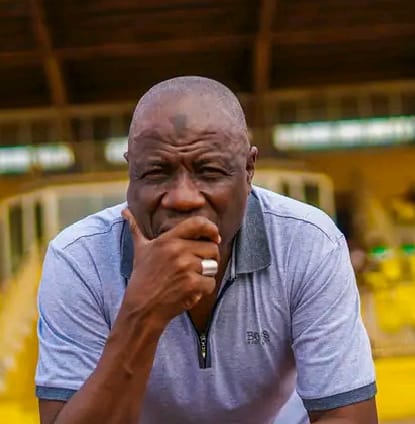
NPFL: Defeat To Kwara United Painful — Nasarawa United Boss Yusuf
Webby - March 27, 2025Nasarawa United head coach Salisu Yusuf has reacted to his team’s 1-0 loss to Kwara United, reports Completesports.com. Emeka Onyema…

Cote d’Ivoire Withdraw As Host Of U-20 AFCON
Webby - March 27, 2025Cote d’Ivoire announced late Tuesday its withdrawal from hosting the 2025 U-20 Africa Cup of Nations just weeks before the…

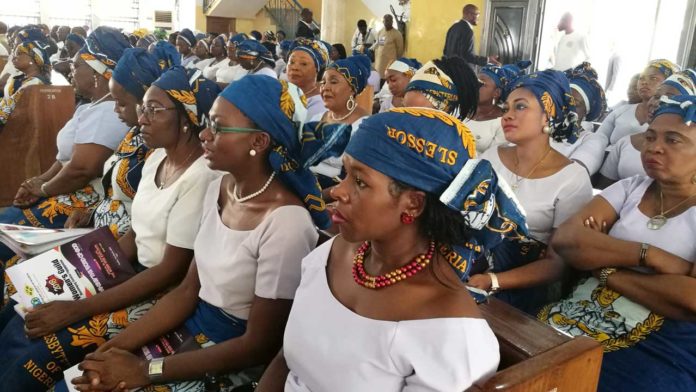
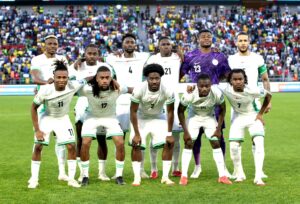










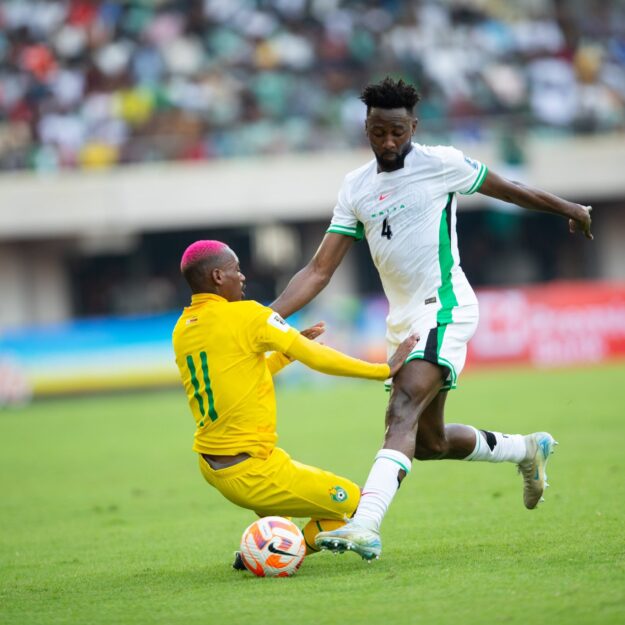



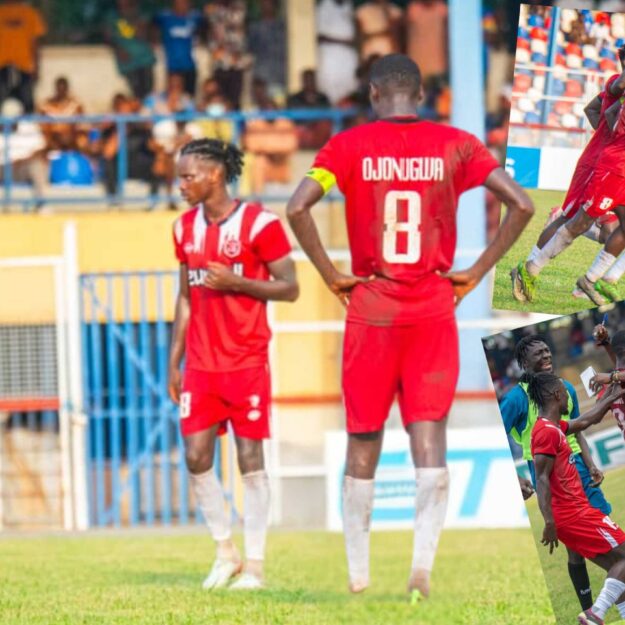
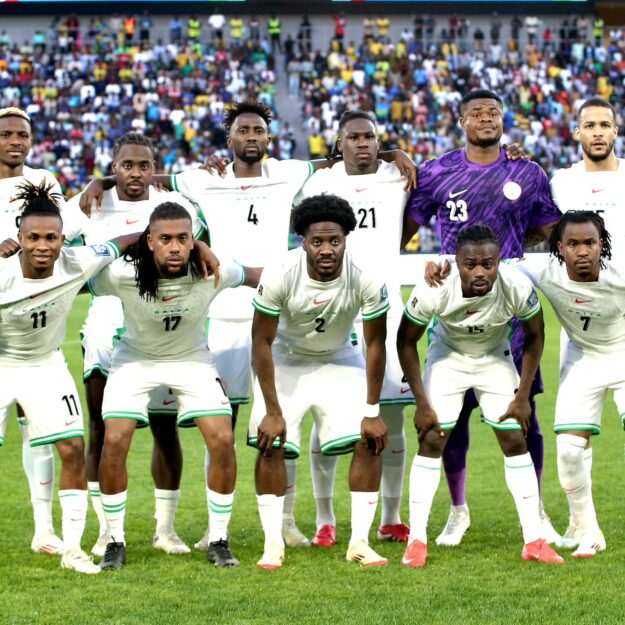


![American Pastor, David Wilson Seen Eating The Box Of Woman Who Isn’t His Wife [Video]](https://onlinenigeria.com/wp-content/uploads/2019/10/american-pastor-david-wilson-seen-eating-the-box-of-woman-who-isnt-his-wife-video-150x150.jpg)








